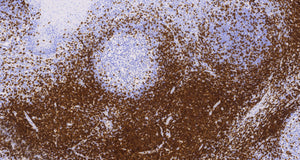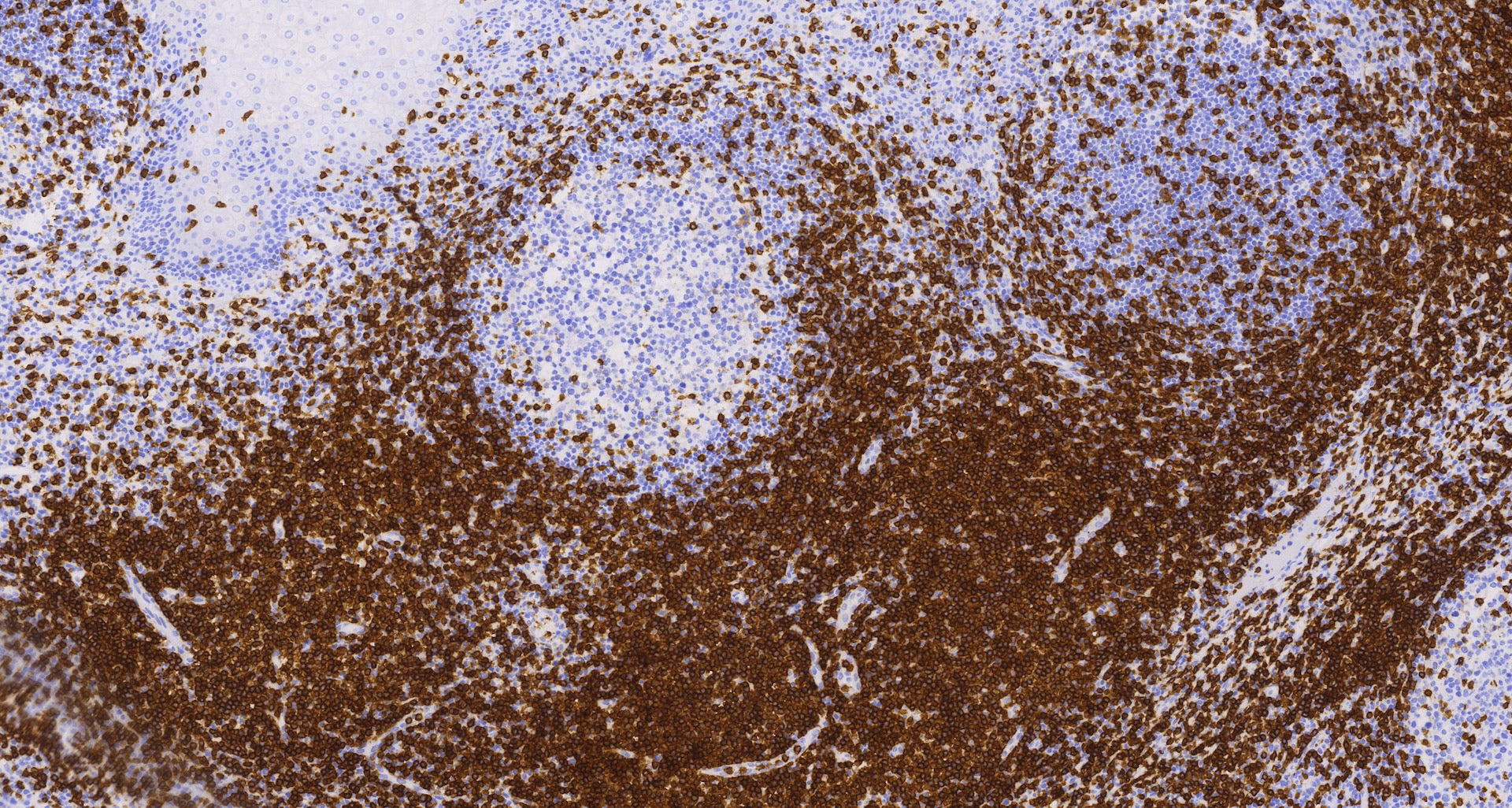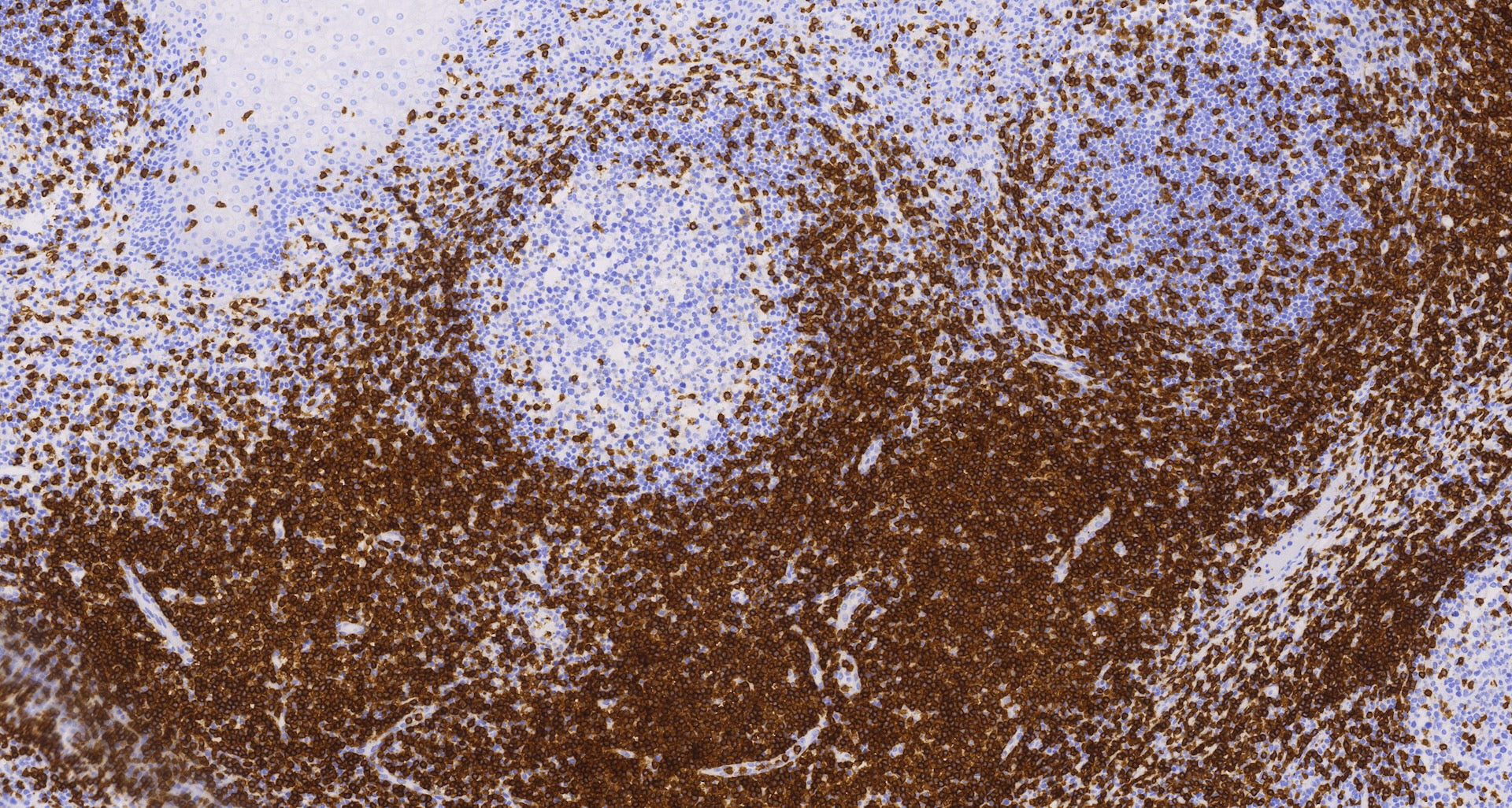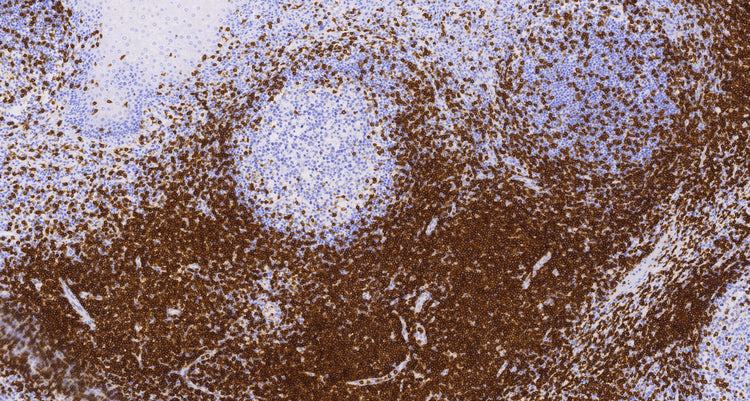

About
The CD3 antigen is a protein complex composed of three distinct chains: CD3γ, CD3δ, and CD3ε. These chains associate with T-cell receptors (TCRs) and the ζ-chain to generate an activation signal in T-lymphocytes. Together with the TCR and ζ-chain, the CD3 molecules form the TCR complex.
The CD3γ, CD3δ, and CD3ε chains are cell surface proteins belonging to the immunoglobulin superfamily and each contain a single extracellular immunoglobulin domain. The intracellular tails of the CD3 molecules contain a conserved motif known as an immunoreceptor tyrosine-based activation motif (ITAM), which is crucial for the signaling capacity of the TCR. Phosphorylation of the ITAM on CD3 enables the CD3 chain to bind the enzyme ZAP70 (zeta-associated protein), an important kinase involved in the signaling cascade of T-cells.
The CD3ε polypeptide plays a vital role in T-cell development. Defects in the CD3 gene can lead to immunodeficiency and have been associated with an increased susceptibility to type I diabetes in women. CD3 has been regarded as the most widely used T-cell marker. The CD3 antibody reacts with an antigen present in early thymocytes, indicating early commitment to the T-cell lineage.
The CD3 antigen is a protein complex composed of three distinct chains: CD3γ, CD3δ, and CD3ε. These chains associate with T-cell receptors (TCRs) and the ζ-chain to generate an activation signal in T-lymphocytes. Together with the TCR and ζ-chain, the CD3 molecules form the TCR complex.
The CD3γ, CD3δ, and CD3ε chains are cell surface proteins belonging to the immunoglobulin superfamily and each contain a single extracellular immunoglobulin domain. The intracellular tails of the CD3 molecules contain a conserved motif known as an immunoreceptor tyrosine-based activation motif (ITAM), which is crucial for the signaling capacity of the TCR. Phosphorylation of the ITAM on CD3 enables the CD3 chain to bind the enzyme ZAP70 (zeta-associated protein), an important kinase involved in the signaling cascade of T-cells.
The CD3ε polypeptide plays a vital role in T-cell development. Defects in the CD3 gene can lead to immunodeficiency and have been associated with an increased susceptibility to type I diabetes in women. CD3 has been regarded as the most widely used T-cell marker. The CD3 antibody reacts with an antigen present in early thymocytes, indicating early commitment to the T-cell lineage.
CD3(C3E7), MMab
Translation missing: en.products.product.sku:cd3(c3e7),-mmab-0.1ml
Couldn't load pickup availability




